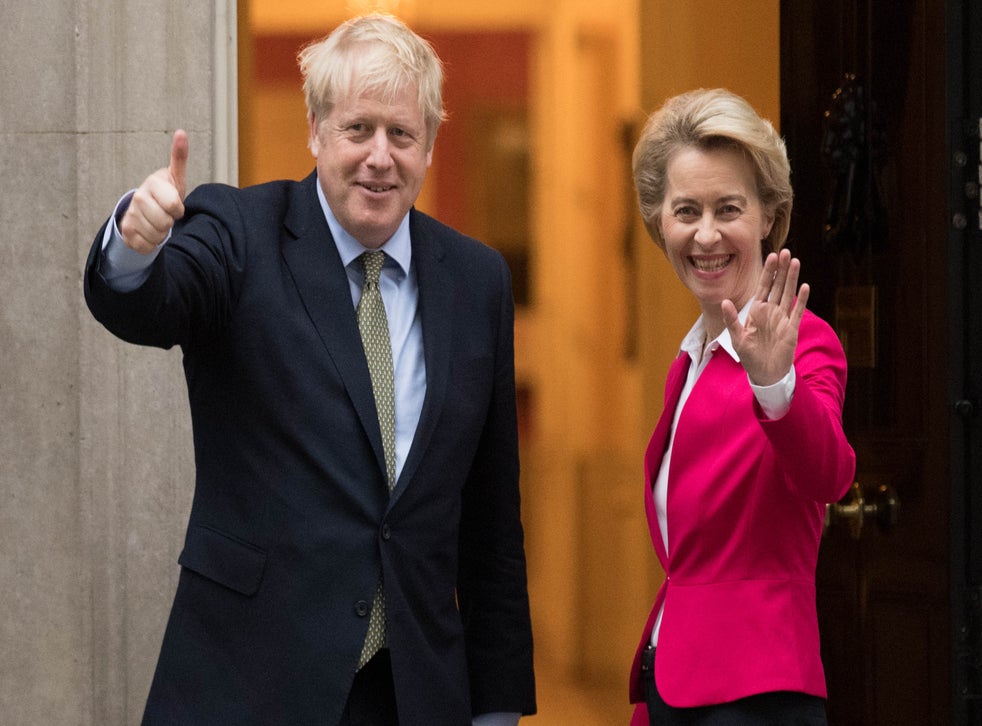
Boris Johnson in Secret Meeting with EU President
Boris Johnson has been holding secret one-on-one talks with the EU Commission president in a bid to break the Brexit deadlock and defuse the chaos at the UK’s borders. EU officials say the pair have held multiple phone calls since the start of the week to discuss trade talks, as well as the shutdown of the UK’s link to the continent.
In a highly unusual move, Downing Street would neither confirm nor deny on the record whether the calls between the prime minister and Ursula von der Leyen had taken place. But one senior EU official described the contact between the two leaders as “part and parcel of the negotiation” and confirmed the calls were going on.
The revelation comes ahead of a meeting in Brussels this afternoon where EU chief negotiator Michel Barnier will brief member state ambassadors on the latest news from talks. Such gatherings have in the past heralded breakthroughs on specific subjects, but officials were pessimistic that any movement could come out of the conference, with one stating: “I wouldn’t particularly get my hopes up.”
There were reports overnight that the UK had made a new offer on fishing to the EU, which would see the bloc’s catch from British waters shrink by around a third.
The EU is said to have rejected the proposal, though this version of events was robustly rejected by Downing Street.
The UK faces a no-deal Brexit in less than two weeks if it does not sign a trade deal, with the ensuing economic damage set to compound the chaos caused by coronavirus. But the situation has been compounded by the government’s announcement that a new, more infectious strain of coronavirus was circulating in southern England.
This claim prompted many countries to shut down all transport between the UK, including all accompanied freight and lorries travelling from the UK to France – a major economic artery.
A European Commission spokesperson said last week that there was “no official deadline for finishing” the negotiations, but the European parliament said on Sunday that it would now not longer be able to approve a Brexit deal this year, due to lack of time.
As a result the only way to avoid a no-deal on 1 January would be for both sides to provisionally apply the deal, if one is agreed. But EU officials say there may not even be enough time to do that given the tight deadline, meaning a short period of disruption in January is now inevitable.

